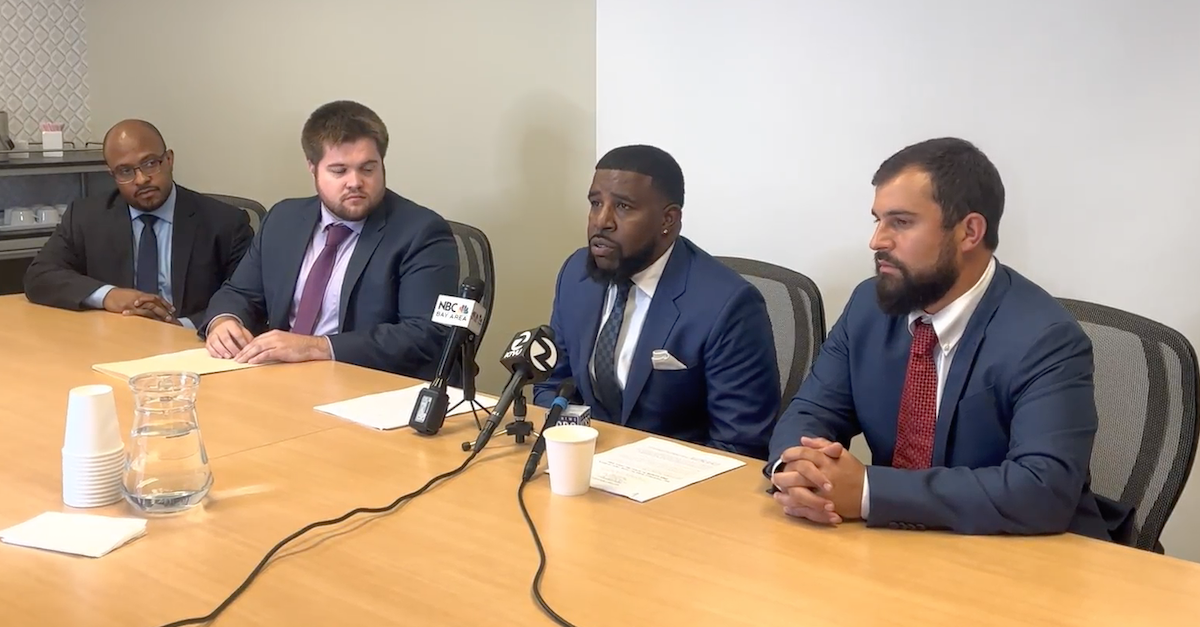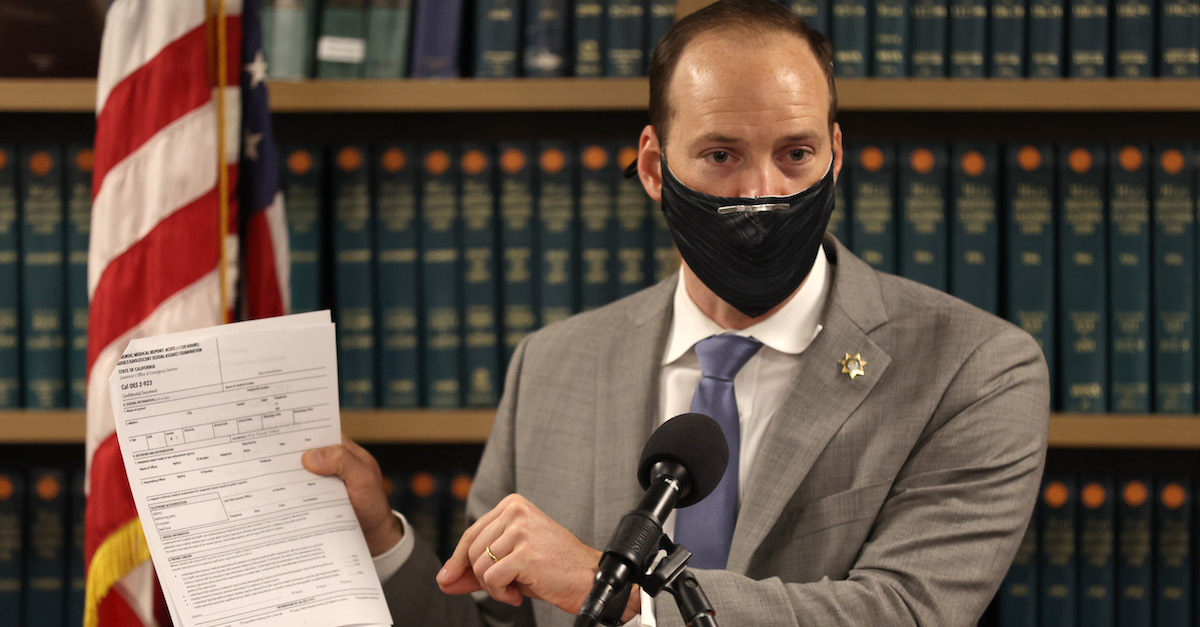
Attorneys Lateef Gray, Ty Clarke, Adanté Pointer and Patrick Buelna of Pointer & Buelna during a press conference Monday, Sept. 13, 2022, in San Francisco. (screenshot from law firm video)
A woman who gave San Francisco a sample of her DNA after she was raped is suing the police, claiming they used it to charge her with an unrelated crime.
A federal lawsuit says the woman, identified only as Jane Doe, was arrested for burglary after police matched DNA from the crime with DNA she submitted in November 2016, after she reported being sexually assaulted.
“Jane Doe came to police looking for help. She came to the police looking for them to do right by her. And instead, the police betrayed her,” lawyer Adanté Pointer said at a press conference Monday, describing the woman as someone “who is courageous, who is brave, who should be applauded and lauded for stepping forward for such an important cause.”
“We can only image how many other police departments are engaging in this same egregious conduct and overreach by our government,” Pointer said.
The woman’s prosecution was first publicized in February by now-recalled District Attorney Chesa Boudin, who demanded the police department stop using DNA from sexual assault victims in other criminal investigations, saying it “treats victims like evidence, not human beings.”

In a Feb. 15, 2022, press conference, now-former San Francisco District Attorney Chesa Boudin holds up a copy of the California State medical examination form for sexual assault victims as he denounces the San Francisco Police Department’s practice of logging DNA evidence from rape kits into their crime database to use as evidence in other crimes. (Photo by Justin Sullivan/Getty Images)
Pointer said Monday and his co-counsel believe police have violated the rights of thousands of others of sexual assault victims by allowing their DNA to be accessed in unrelated investigations.
“The last thing a survivor is thinking is that this will one day come back and be used against me for something that is wholly unrelated to the basis of why I sought protection from law enforcement,” Pointer said.
All charges against the woman were “eventually dropped,” according to the lawsuit, but “the appalling, exploitative, and unconstitutional nature of Defendants’ practice cannot be ignored.”
The city and county of San Francisco have not yet responded to the lawsuit, which has been assigned to U.S. Magistrate Judge Alex G. Tse in San Francisco. The two municipalities are named as defendants alongside San Francisco police Chief William Scott, police crime lab director Mark Powell, criminalist Kelley Racchia and Sgt. Sylvia Lange in a 14-page complaint that says allowing victims’ DNA to be tested in unrelated investigations is an “arbitrary, unlawful unconstitutional invasion of privacy.” The city and county of San Francisco has had a policy “since at least 2015” of testing victims’ DNA that way, “without the victims’ consent or knowledge.”
The California Legislature this year outlawed the use of victim DNA samples for purposes not directly related to the incident being investigated in a bill inspired by the woman’s case.
The five-claim lawsuit seeks unspecified damages to cover medical expenses and pain and suffering stemming from negligence and violations of federal civil rights law as well as the woman’s Fourth Amendment right to privacy. It says the unlawful use of the woman’s DNA amounts to an unlawful search and seizure, and that the police department has allowed the searches through an unconstitutional policy.
Lawyers released the consent form victims must complete before undergoing a rape examination to show it doesn’t say the DNA collected will be used for any other purpose.
“I’ve never seen one doing criminal defense that says, ‘Hey we’re going to be putting yours in a permanent database that any government agency can use in order to see if you match a crime,” said lawyer Patrick Buelna.
Read the lawsuit below.
(Image: screenshot from law firm video, photo by Justin Sullivan/Getty Images)
Have a tip we should know? [email protected]